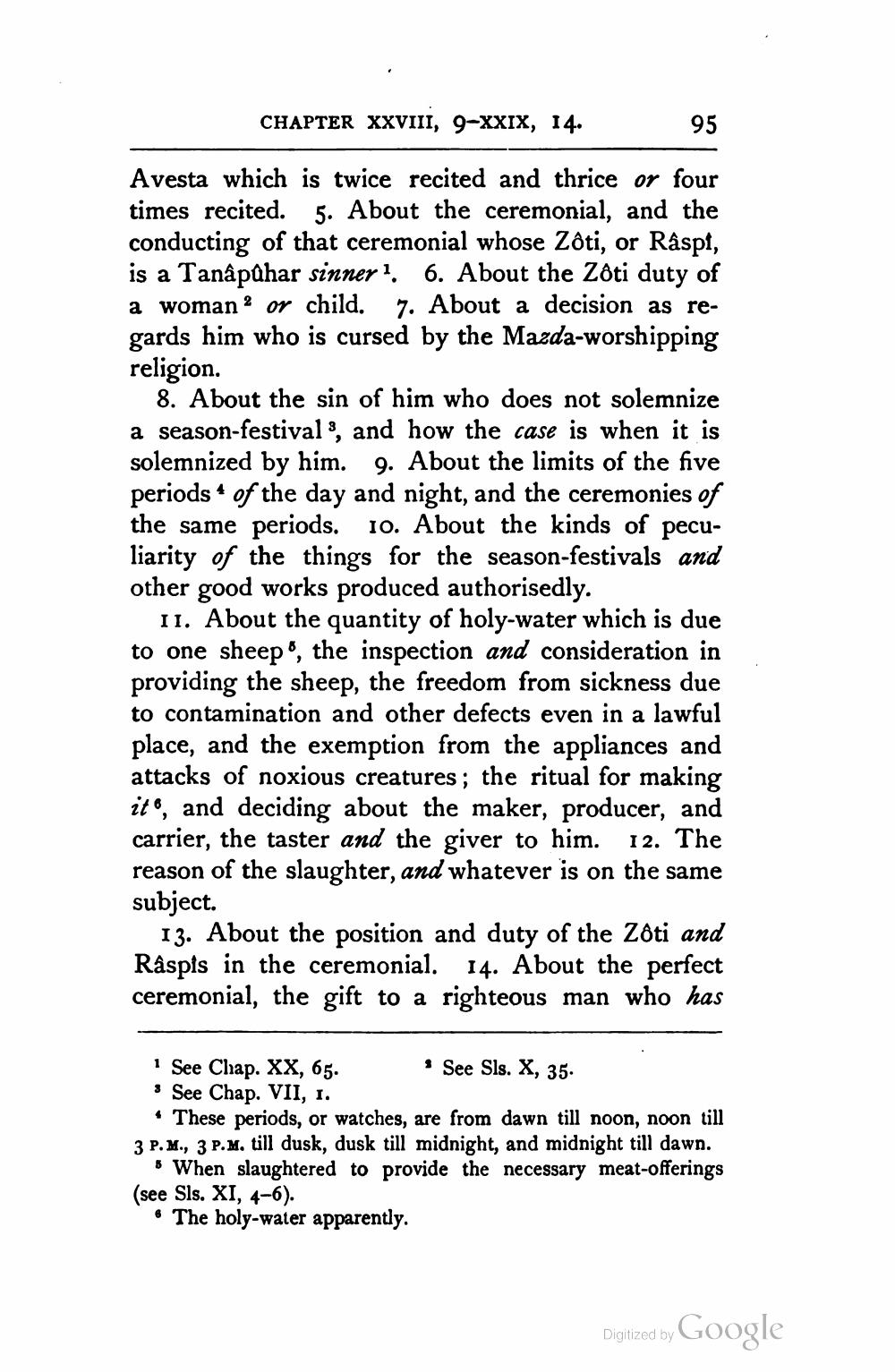________________
CHAPTER XXVIII, 9-XXIX, 14.
95
Avesta which is twice recited and thrice or four times recited. 5. About the ceremonial, and the conducting of that ceremonial whose Zôti, or Råspi, is a Tanâpahar sinnerl. 6. About the Zoti duty of a woman? or child. 7. About a decision as regards him who is cursed by the Mazda-worshipping religion.
8. About the sin of him who does not solemnize a season-festivals, and how the case is when it is solemnized by him. 9. About the limits of the five periods of the day and night, and the ceremonies of the same periods. 10. About the kinds of peculiarity of the things for the season-festivals and other good works produced authorisedly.
11. About the quantity of holy-water which is due to one sheep', the inspection and consideration in providing the sheep, the freedom from sickness due to contamination and other defects even in a lawful place, and the exemption from the appliances and attacks of noxious creatures; the ritual for making ito, and deciding about the maker, producer, and carrier, the taster and the giver to him. 12. The reason of the slaughter, and whatever is on the same subject.
13. About the position and duty of the Zoti and Raspis in the ceremonial. 14. About the perfect ceremonial, the gift to a righteous man who has
See Chap. XX, 65. See Sls. X, 35. * See Chap. VII, 1.
• These periods, or watches, are from dawn till noon, noon till 3 P.M., 3 P.M. till dusk, dusk till midnight, and midnight till dawn.
5 When slaughtered to provide the necessary meat-offerings (see Sls. XI, 4-6).
. The holy-water apparently.
Digitized by Google




